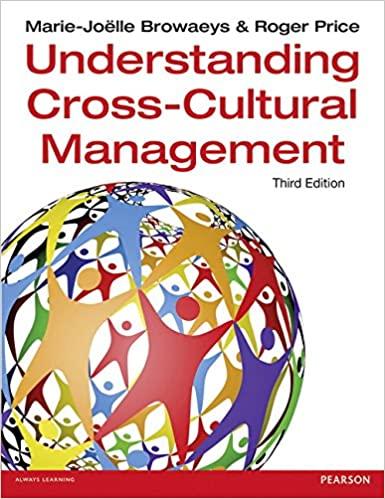Question
Fill in the following IRAC form based on the case study that follows IRAC Format Facts: ISSUE: #1: #2: #3 RULE of LAW: ANALYSIS: CONCLUSION:
Fill in the following IRAC form based on the case study that follows
IRAC Format
Facts:
ISSUE:
#1:
#2:
#3
RULE of LAW:
ANALYSIS:
CONCLUSION:
Sally calls about an urgent issue with her catering company contract with the federal government. Her usual supplier was hospitalized and could not ship her weekly order to service her military accounts. General Messhall told Sally to contact a different supplier to fill the order. Sally faxed her standard pre-printed order form to the new supplier for $17,642.54 worth of goods. The order form contained the foodstuff, quantity, payment terms, the amount listed on the front, and the usual boilerplate terms on the back. Within two days, Sally received the order from the substitute supplier. The supplier also sent his pre-printed invoice form with the supply delivered on the front and different boilerplate terms than Sally's invoice on the back that also contained a payment term penalty. Jack's business form included a price of $20,642.54, a three-thousand-dollar price increase over Sally's invoice. When Sally received the goods the next day, she immediately put them in cold storage. That same day Sally received a call from someone who identified himself as "Jack, the Substitute Supplier." Jack stated, "Hey! This is Jack, the Substitute Supplier. I want to inform you that your payment for the shipment is overdue, and because you're late, the rate is an additional $3,000 per day plus the base price." Sally said Jack told her to review his invoice which stated that a penalty of $3,000 per 12 hours default nonpayment surcharge attaches for late payments.
Sally retorts, "Yeah, well, I don't accept." She instantly retrieved his invoice, read the terms on the back of the invoice, and realized that the supplier's form had payment terms demanding payment for delivery of goods within 12 hours of delivery. That calculated out to be $6,000 over her regular invoice price and another $3,000 due in 12 hours. Sally noted that her form had a different term for payment that gave her 30 days net payment. Jack, the substitute supplier, told Sally before hanging up that if he doesn't receive his cash, plus any penalties due, Jack would immediately file a lawsuit for breach of the terms of his delivery order.
Sally retrieves her form and compares the two order forms side by side. She notes a substantial difference in the boilerplate terms but notes other conditions are similar but noticeably different enough to make the effect substantially unfavorable to her. Jack's form matched the goods requested, listed the correct quantity, and the delivery terms were the same as her form required. Jack's standard terms (often called "boilerplate") were utterly unreasonable and one-sided, not matching hers at all. He had the right to substitute non-conforming goods and did not warrant the quality of the products. Jack's PO stated that if a dispute arose between the PO's terms, the merchants must pursue resolution through Alternative Dispute Resolution (ADR), mandated arbitration. Jack's PO also stated that if the dispute involved interpreting a price term, Jack could sue in Federal Court in his state based on Diversity of Citizenship. Since the issue involved pricing, Jack could file a suit immediately.
Between merchants, it is customary to use purchase and acceptance order forms for commercial transactions involving the sale of goods without a negotiated signed contract. PO's are standard printed forms that contain boilerplate terms and a few essential terms directed at commercial goods. They are fast and easy to use and designed to cover essential information and requirements of merchants. Contracts take time, and the process does not always result in an agreement, nor are contracts completed on time once the lawyers are involved. With merchants, time is of the essence; they need it now! While written by a lawyer, purchase orders do not have transactional legal oversight, especially when crossing PO's, one from merchant buyer and one from merchant seller. As a result, the merchants don't end up with signed contracts. The question is, at what point is a contract formed, if at all, and what are the terms? PO disputes continuously end up in litigation. These cases are very fact-specific, resulting in the specific transaction in question. The ultimate issue with competing PO forms with different essential terms is what's enforceable considering the content of both forms.
Step by Step Solution
There are 3 Steps involved in it
Step: 1

Get Instant Access to Expert-Tailored Solutions
See step-by-step solutions with expert insights and AI powered tools for academic success
Step: 2

Step: 3

Ace Your Homework with AI
Get the answers you need in no time with our AI-driven, step-by-step assistance
Get Started


